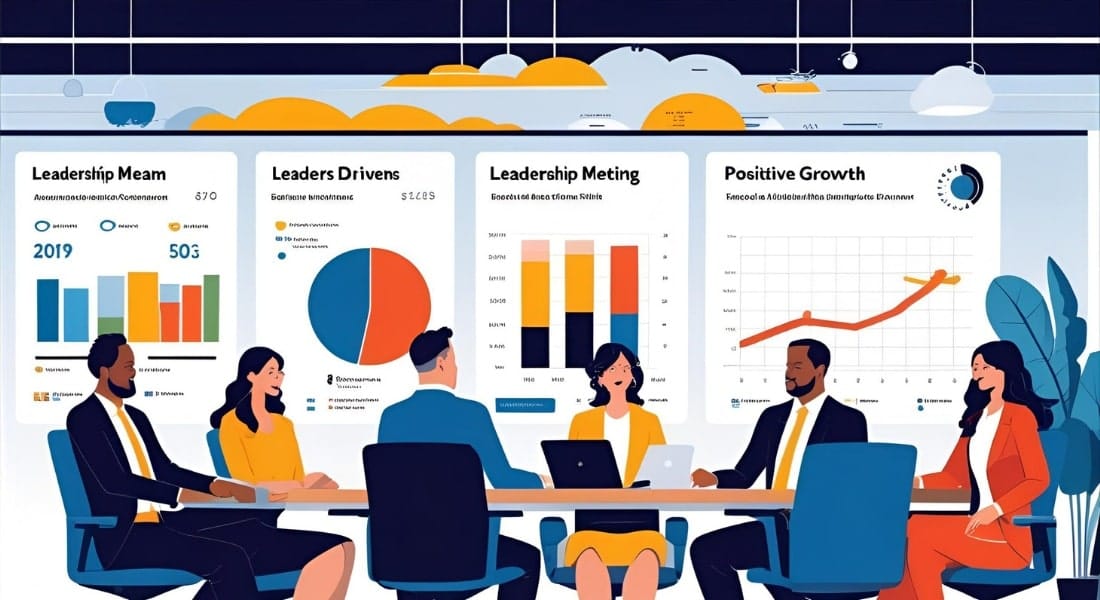- Why DE&I Requires Specialized HR Leadership
- Key Qualities to Look for in an HR Leader Driving DE&I
- Steps to Hire the Right HR Leader for DE&I
- Avoiding Common Pitfalls in Hiring for DE&I Leadership
- How a DE&I-Driven HR Leader Impacts Business Outcomes
- Conclusion: A Strategic Imperative for Modern Business
In today’s business landscape, Diversity, Equity, and Inclusion (DE&I) has evolved from a corporate buzzword into a fundamental pillar of a healthy, innovative, and profitable organization. Companies are recognizing that a diverse workforce isn’t just a social responsibility; it’s a strategic advantage. However, creating a truly inclusive culture doesn’t happen by accident. It requires intentional, sustained effort, and at the heart of that effort is a strong Human Resources leader.
Hiring the right HR leader for DE&I is one of the most critical decisions a company can make. This individual isn’t just filling a role; they are a catalyst for cultural transformation. They are the architect of policies that promote equity, the champion for voices that have been historically marginalized, and the strategic partner who ensures DE&I is woven into every facet of the business, from talent acquisition to succession planning.
Why DE&I Requires Specialized HR Leadership
Simply tasking an existing HR team with “doing DE&I” is often a recipe for superficial results. Effective diversity equity and inclusion HR leadership goes far beyond celebrating heritage months or running one-off unconscious bias trainings. It’s about systemic change. A specialized HR leader understands that true inclusion requires a root-and-branch examination of all people-related processes.
This leader’s role is to challenge the status quo and ask difficult questions:
- Are our hiring processes unintentionally filtering out diverse candidates?
- Do our compensation and promotion systems have built-in biases?
- Is our leadership team equipped to manage diverse teams inclusively?
- Are we creating a psychologically safe environment where every employee feels they belong?
Without a leader who possesses the specific expertise and passion for this work, DE&I initiatives can easily stall, becoming a series of disconnected activities rather than a cohesive, impactful strategy.
Key Qualities to Look for in an HR Leader Driving DE&I

When you set out to recruit a DEI-focused HR executive, you’re looking for a unique combination of skills, experience, and personal attributes. This isn’t just about HR fundamentals; it’s about the ability to lead with empathy and drive meaningful change.
Cultural Intelligence and Empathy
A true workplace equality champion must possess high cultural intelligence (CQ) and deep-seated empathy. This means they have the ability to understand, appreciate, and interact effectively with people from different cultural backgrounds and lived experiences. In an interview setting, this goes beyond a candidate simply stating they “value diversity.”
Look for a leader who can:
- Listen actively and seek to understand perspectives different from their own.
- Navigate sensitive conversations with grace and emotional intelligence.
- Build trust and psychological safety across all levels of the organization.
Track Record of Inclusive Initiatives
Talk is cheap. The ideal candidate will have a demonstrable history of conceiving, launching, and scaling successful DE&I initiatives. During the hiring process, dig deep into their past accomplishments.
Probe for specific examples of their work on:
- Diversity Hiring Practices: Ask how they have redesigned recruitment processes to attract and hire a more diverse talent pool. Did they eliminate biased language from job descriptions, implement diverse interview panels, or partner with new community organizations?
- Equitable HR Strategies: Inquire about their experience with pay equity audits, developing inclusive promotion pathways, or creating mentorship and sponsorship programs for underrepresented employees.
- Data-Driven Programs: A strong candidate will have used data to identify DE&I gaps and measure the impact of their initiatives. Ask them to walk you through a time they used metrics to drive change.
Strategic Vision for Long-Term Change
DE&I is a marathon, not a sprint. A tactical HR manager might focus on short-term fixes, but a strategic Chief People Officer for DE&I will present a long-term vision that aligns with overarching business goals. They should be able to articulate how a more inclusive culture will drive innovation, improve employee retention, and enhance the company’s brand reputation. Their vision should be systemic, aiming to embed DE&I principles into the very DNA of the organization.
Steps to Hire the Right HR Leader for DE&I
A successful hire requires a thoughtful and intentional process. You can’t just post a generic HR Director role and hope for the best.

Defining the Role with a DE&I Lens
Start with the job description. It is your first signal to the market that you are serious about DE&I. Explicitly outline the DE&I responsibilities and expectations. Instead of listing it as a single bullet point, integrate it throughout the description of responsibilities. Clarify that this role has the authority, budget, and executive support to effect real change. This is a crucial step in attracting genuine HR leaders for diversity initiatives.
Assessment and Interview Strategies
Your interview process must be designed to assess the key qualities mentioned earlier.
- Behavioral Questions: Use questions like, “Tell me about a time you faced resistance to a DE&I initiative and how you handled it,” or “Describe how you have used data to build a business case for an inclusion program.”
- Case Studies: Present a realistic scenario your company is facing (e.g., low representation of women in leadership) and ask the candidate how they would approach it in their first 90 days.
- Diverse Interview Panel: Ensure the candidate meets with a diverse group of stakeholders from across the organization. This not only provides you with varied perspectives but also signals that inclusive workplace leadership is a shared value.
Leveraging Executive Search Firms with DE&I Focus
For a role this critical, partnering with an executive search firm that has proven expertise in DE&I is a wise investment. These firms have deep networks of diverse, high-caliber talent and are skilled at assessing the nuanced competencies required for this type of leadership. They can provide a more diverse slate of candidates and help you navigate the complexities of talent acquisition for inclusive leaders.
Avoiding Common Pitfalls in Hiring for DE&I Leadership
- Tokenism: Don’t hire someone just to be the “face” of diversity. This leader must have real power to influence strategy and policy.
- The “Fix-It” Expectation: Avoid placing the entire burden of DE&I on one person’s shoulders. This must be a shared responsibility, championed from the CEO down.
- Under-Resourcing the Role: The most passionate leader will fail without a proper budget and a supportive team. Ensure they are set up for success from day one.
How a DE&I-Driven HR Leader Impacts Business Outcomes
The impact of hiring the right HR leader for DE&I extends far beyond employee morale. Research consistently shows that diverse and inclusive companies outperform their peers. A study by McKinsey found that companies in the top quartile for gender diversity on executive teams were 25% more likely to have above-average profitability. For ethnic and cultural diversity, that number jumps to 36%.

This leader drives tangible results by:
- Improving Innovation: Diverse teams bring a wider range of perspectives, leading to more creative problem-solving.
- Enhancing Employee Engagement and Retention: When employees feel seen, valued, and respected, they are more likely to be engaged and loyal.
- Attracting Top Talent: A strong reputation for DE&I is a major differentiator in today’s competitive talent market.
Conclusion: A Strategic Imperative for Modern Business
Hiring an HR leader who can effectively champion and implement DE&I is not just a trend; it’s a strategic imperative for any organization that wants to thrive in the future. This leader is more than an HR executive; they are a visionary, a culture-shaper, and a business partner. By moving beyond traditional hiring practices and intentionally seeking out leaders with the empathy, experience, and strategic vision to build a truly inclusive workplace, you are not just making a good hire—you are making a long-term investment in the resilience, innovation, and success of your entire organization.
Frequently Asked Questions (FAQs)
1. What is the difference between an HR leader with DE&I skills and a dedicated Head of DE&I? An HR leader with DE&I skills, such as a Chief People Officer, integrates DE&I principles across all HR functions (recruitment, compensation, performance management). A dedicated Head of DE&I often focuses exclusively on DE&I strategy, programs, and metrics, working as a strategic partner to the HR leader and the executive team. For many companies, having a CPO or VP of HR who is a DE&I expert is the most effective model.
2. How do we measure the success of a DE&I-focused HR leader? Success can be measured through a combination of quantitative and qualitative metrics. Quantitative data includes representation numbers (at all levels), promotion and attrition rates by demographic, pay equity analysis, and supplier diversity spend. Qualitative data can be gathered from employee engagement surveys (specifically questions about belonging and fairness), focus groups, and exit interview feedback.
3. What are some red flags to watch for when interviewing candidates? Red flags include candidates who speak only in buzzwords without providing concrete examples, who cannot articulate how they’ve used data to drive decisions, who place the blame for lack of progress on others, or who see DE&I as a separate “program” rather than an integrated business strategy.
4. Can an internal candidate be promoted to this role? Absolutely. An internal candidate can be a great choice as they already understand the company culture, challenges, and key stakeholders. However, it’s crucial to ensure they have the specific DE&I expertise and a track record of advocacy, not just seniority in HR. They must be seen as a credible champion for change.
5. Why is it important for the CEO to be involved in hiring this leader? CEO involvement signals that DE&I is a top-level business priority. The HR leader responsible for DE&I needs a strong partnership with the CEO to drive systemic change, secure resources, and ensure accountability across the entire leadership team. The CEO’s public and private support is critical for their success.
Ready to find your next great HR leader? Explore our HR executive recruiting services to start your search with confidence.


